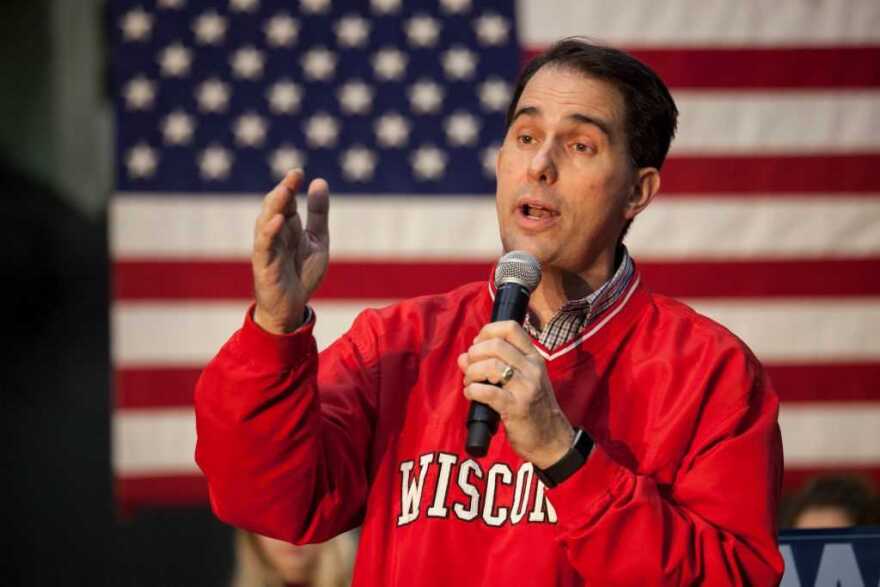Update Nov. 16
Gov. Scott Walker made his first comments to reporters on Thursday after losing his re-election bid. He promised he wouldn't "retreat." Walker also signaled potential support for a variety of Republican-backed efforts to limit the power of his Democratic successor, including moving the date of the 2020 presidential primary.
Original Story Nov. 12
Now that Gov. Scott Walker has lost his bid for re-election, some people are curious about the Republican's future and his legacy. UW-Milwaukee political science professor Mordecai Lee shares his thoughts.
1. What will be Walker's legacy?
"From today's perspective — a week after he was defeated — we can say that he'll go down as a very controversial governor, really reinventing what it meant to be a Republican in Wisconsin," says Lee. "To a certain extent, Walker reflected the revolution of the Tea Party that happened after Obama got elected." Lee says Walker was a fiscal conservative who did not believe in compromise.
"There's no doubt that today we would say his legacy is Act 10," Lee asserts. "Up to that point, both Democratic governors and Republican governors had accepted the status quo, that state employees had the same right to unionize and organize as private sector people."
"In [Walker] comes and in one fell swoop, he reverses essentially half a century of Wisconsin labor management history," Lee says.
Lee says Walker knocked down the clout of labor unions, and by extension, of the Democratic Party in Wisconsin.
2. Are there any issues shaping Walker's legacy that are still outstanding?
"The most interesting issue is Foxconn," says Lee. "When Gov. Walker announced the agreement with Foxconn, he was so sure it was a political plus and an economic plus. And yet a year and a half later, Foxconn was as much a drag on him politically as it was a benefit."
Lee says while Walker kept trying to get Foxconn to do things like open innovation centers and release a list of state contractors, he couldn't quite get the message across to voters that the huge incentives package was a benefit to all the voters in the state.
"To my surprise, it just didn't sell ... now in a sense that the politics are over, the economics of it as an economic tool I think remain to be seen," Lee says.
3. Where do things stand for Walker now?
Lee mentions that Walker had not made any public appearances as of a week after the election.
"I suspect that he was really thinking that his luck would hold. I think he was assuming he would win again ... I think what we're seeing is a very skilled politician who is off his stride," says Lee. "You might almost say what the voters did is impose on him a mid-career crisis. I think this is a tough time for him and he's sort of licking his wounds. But he'll eventually come out of it; he's a very strong person."
4. What's the likelihood of Walker joining the Trump administration?
"It's so interesting that President Trump is a different kind of politician," says Lee. "Traditionally, when a major politician loses an election, if the person is of the same party as the president, presidents always give positions to those kind of people. And there are plenty of unfilled positions in the Trump administration right now, and there are always ambassadorships that are open," Lee explains. "President Trump is so different. He might have this very idiosyncratic political reaction of, 'well, so-and-so is a loser.' I think it's possible he won't be offering jobs to people who lost elections, whether we're talking about governors or senators from the Republican Party."



